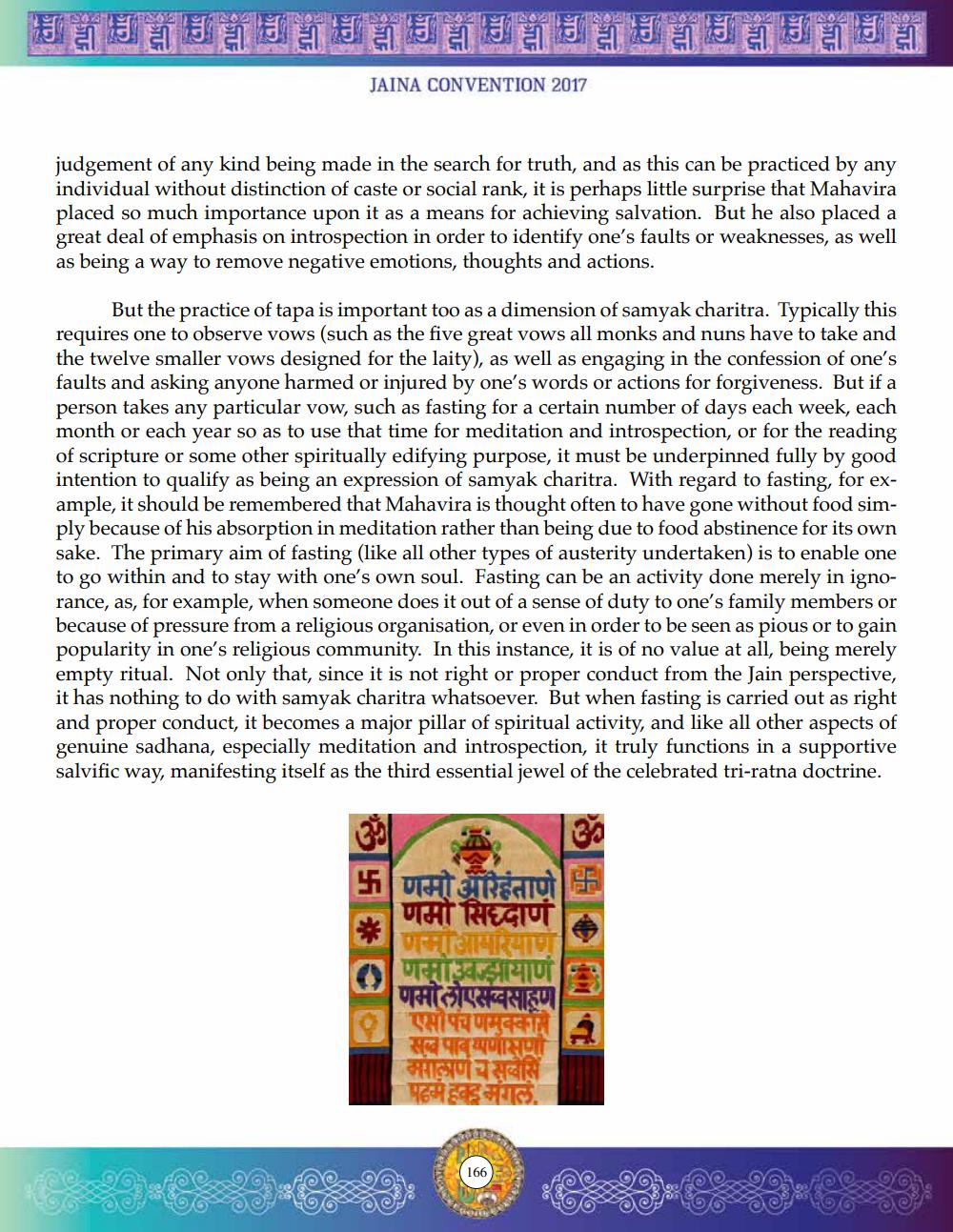________________
JAINA CONVENTION 2017
judgement of any kind being made in the search for truth, and as this can be practiced by any individual without distinction of caste or social rank, it is perhaps little surprise that Mahavira placed so much importance upon it as a means for achieving salvation. But he also placed a great deal of emphasis on introspection in order to identify one's faults or weaknesses, as well as being a way to remove negative emotions, thoughts and actions.
But the practice of tapa is important too as a dimension of samyak charitra. Typically this requires one to observe vows (such as the five great vows all monks and nuns have to take and the twelve smaller vows designed for the laity), as well as engaging in the confession of one's faults and asking anyone harmed or injured by one's words or actions for forgiveness. But if a person takes any particular vow, such as fasting for a certain number of days each week, each month or each year so as to use that time for meditation and introspection, or for the reading of scripture or some other spiritually edifying purpose, it must be underpinned fully by good intention to qualify as being an expression of samyak charitra. With regard to fasting, for example, it should be remembered that Mahavira is thought often to have gone without food simply because of his absorption in meditation rather than being due to food abstinence for its own sake. The primary aim of fasting (like all other types of austerity undertaken) is to enable one to go within and to stay with one's own soul. Fasting can be an activity done merely in ignorance, as, for example, when someone does it out of a sense of duty to one's family members or because of pressure from a religious organisation, or even in order to be seen as pious or to gain popularity in one's religious community. In this instance, it is of no value at all, being merely empty ritual. Not only that, since it is not right or proper conduct from the Jain perspective, it has nothing to do with samyak charitra whatsoever. But when fasting is carried out as right and proper conduct, it becomes a major pillar of spiritual activity, and like all other aspects of genuine sadhana, especially meditation and introspection, it truly functions in a supportive salvific way, manifesting itself as the third essential jewel of the celebrated tri-ratna doctrine.
णमोरिहंताणे व णमा सिध्दाण OF L4R4101 णमोवझायाण णमालाएसवसाहण एसपिचणमुक्काम सबपावयणाममा सालार्णच सर्वसि पढ़मंहबई मंगले.




